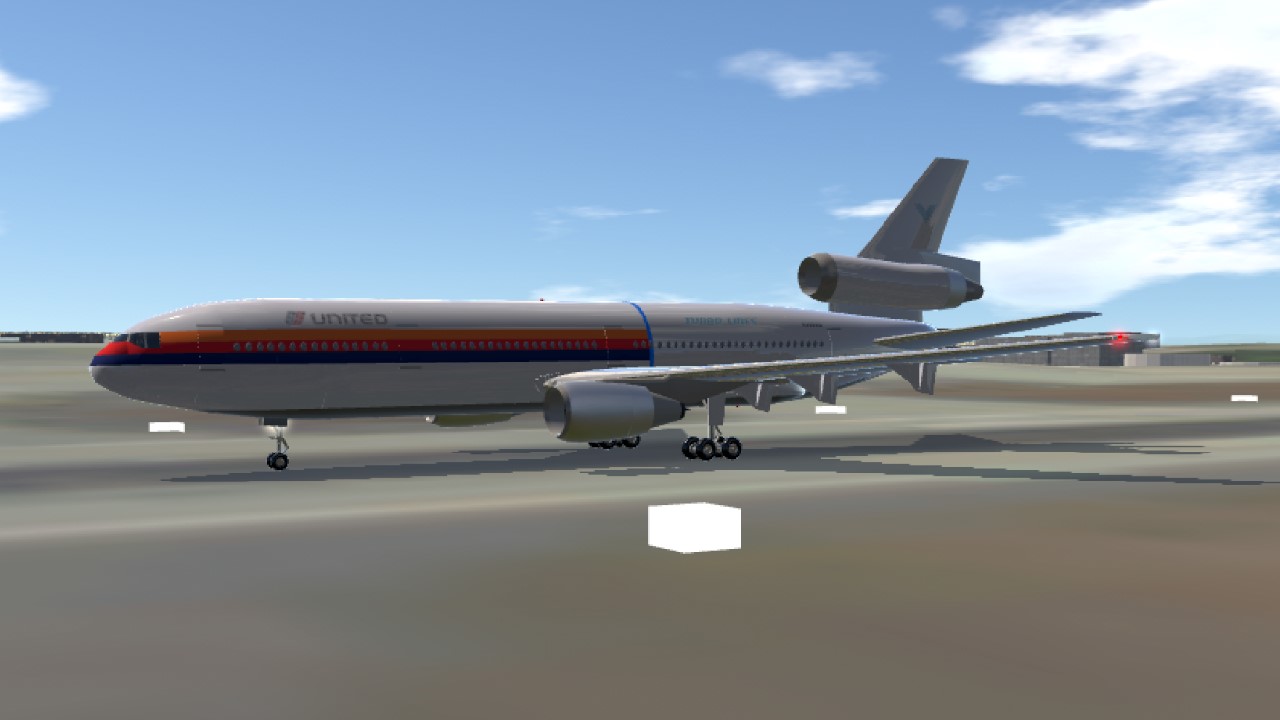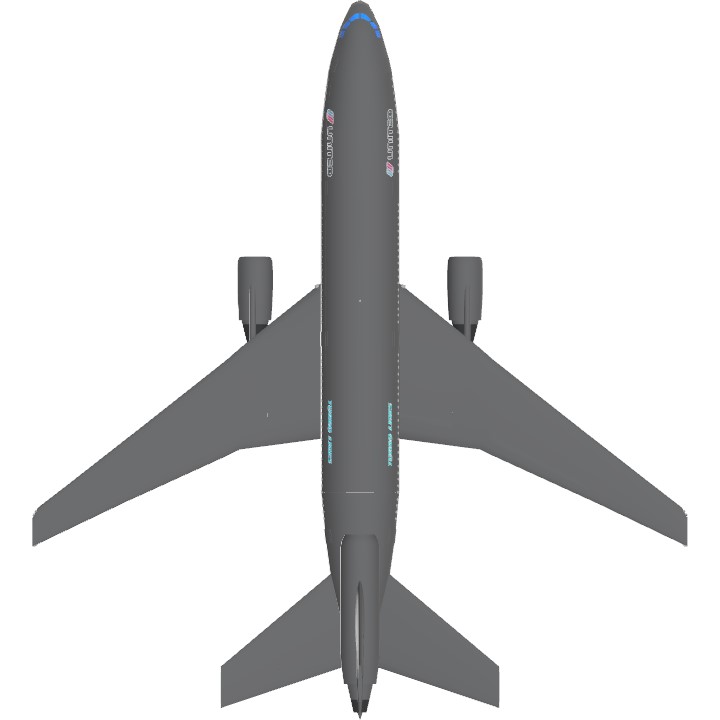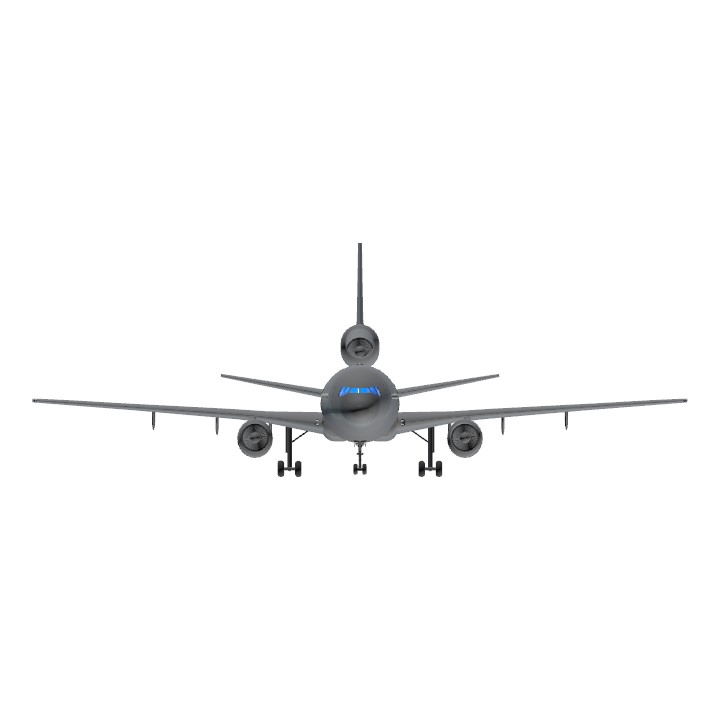Credits |RepublicOfCursedPlanes's United Airlines Douglas DC 10-10
Wikipedia
The McDonnell Douglas DC-10 is an American trijet wide-body aircraft manufactured by McDonnell Douglas. The DC-10 was intended to succeed the DC-8 for long-range flights. It first flew on August 29, 1970; it was introduced on August 5, 1971, by American Airlines.
The trijet has two turbofans on underwing pylons and a third one at the base of the vertical stabilizer. The twin-aisle layout has a typical seating for 270 in two classes. The initial DC-10-10 had a 3,500 nmi (6,500 km) range for transcontinental flights. The DC-10-15 had more powerful engines for hot and high airports. The DC-10-30 and -40 models (with a third main landing gear leg to support higher weights) each had intercontinental ranges of up to 5,200 nmi (9,600 km). The KC-10 Extender (based on the DC-10-30) is a U.S. Air Force tanker.
A design flaw in the original cargo doors caused a poor safety record in early operations. Following the American Airlines Flight 191 crash (the deadliest aviation accident in US history), the US Federal Aviation Administration (FAA) grounded all U.S. DC-10s in June 1979. In August 1983, McDonnell Douglas announced that production would end due to a lack of orders, as it had a widespread public apprehension after the 1979 crash and a poor fuel economy reputation. Design flaws were rectified and fleet hours increased, for a safety record later comparable to similar era passenger jets.
Production ended in 1989, with 386 delivered to airlines along with 60 KC-10 tanker aircraft. The DC-10 outsold the similar Lockheed L-1011 TriStar. It was succeeded by the lengthened, heavier McDonnell Douglas MD-11. After merging with McDonnell Douglas in 1997, Boeing upgraded many in-service DC-10s as the MD-10 with a glass cockpit that eliminated the need for a flight engineer. In February 2014, the DC-10 made its last commercial passenger flight. Cargo airlines continue to operate a small number as freighters. The Orbis Flying Eye Hospital is a DC-10 adapted for eye surgery. A few DC-10s have been converted for aerial firefighting use. Some DC-10s are on display, while other retired aircraft are in storage.
Specifications
General Characteristics
- Predecessor United Airlines Douglas DC 10-10 [Flight 232]
- Created On Windows
- Wingspan 165.4ft (50.4m)
- Length 181.7ft (55.4m)
- Height 59.0ft (18.0m)
- Empty Weight N/A
- Loaded Weight 130,347lbs (59,124kg)
Performance
- Power/Weight Ratio 1.168
- Horse Power/Weight Ratio 0.034
- Wing Loading 27.7lbs/ft2 (135.4kg/m2)
- Wing Area 4,700.5ft2 (436.7m2)
- Drag Points 10534
Parts
- Number of Parts 575
- Control Surfaces 9
- Performance Cost 3,469





@SlowSeline82 alright 2 request is enough...
Bru
@SlowSeline82 i already know
@FedexGuy About that, you forgot something...
there's someone request you, I would like three planes, Egypt Air Boeing 767 flight 990 crash in 1999 and Egypt Air A320 flight 804 crash in 2016, and finally........
Hapag-Lloyd Flight 3378 crashed land in 2000
Small changes were made on the livery...